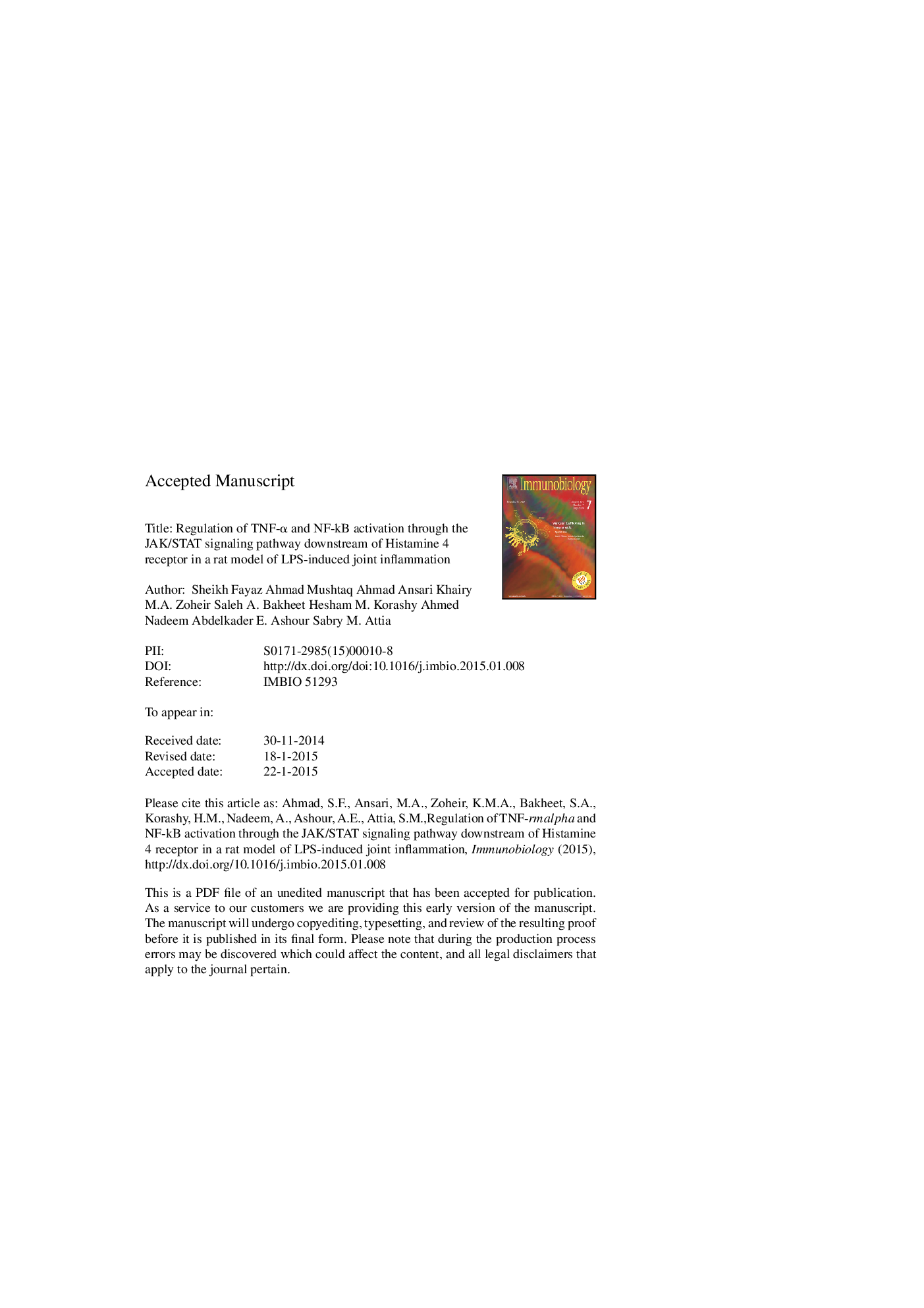| Article ID | Journal | Published Year | Pages | File Type |
|---|---|---|---|---|
| 10940823 | Immunobiology | 2015 | 37 Pages |
Abstract
Histamine 4 receptor (H4R) is a novel target for the pharmacological modulation of histamine-mediated immune signals during inflammatory diseases. The purpose of this study was to assess the effects of the H4R agonist 4-methylhistamine dihydrochloride (4-MeH) and antagonist JNJ7777120 (JNJ) in the inflamed rat knee. Animals were fasted for 18 h before a single dose of 4-MeH or JNJ (30 mg/kg) was administered intraperitoneally (i.p.), both followed by intra-articular (i.a.) injection of LPS 2 h later. Blood and synovial fluid were collected after a short incubation period and TNF-α, NF-κB, and IkB-α levels were measured via flow cytometry. Additionally, we assessed the effects of H4R engagement on the expression of IL-1β, TNF-α, and NF-κB mRNAs and the protein levels of TNF-α, NF-κB, JAK-1, and STAT-3 in the inflamed knee tissue. These results revealed increased TNF-α and NF-κB expression and decreased IkB-α levels in both the LPS alone and 4-MeH treated groups in whole blood and synovial fluid. Further, IL-1β, TNF-α, and NF-κB mRNA levels were significantly increased and western blot analysis confirmed increased expression of TNF-α, NF-κB, JAK-1, and STAT-3 in both LPS and 4-MeH treatment groups. Furthermore, these increases were completely inhibited in the inflamed knee tissue of the JNJ-treated group. Thus, the inhibition of inflammatory mediators and signaling pathways by the H4R antagonist JNJ suggests the anti-arthritic importance of this molecule.
Keywords
Related Topics
Life Sciences
Biochemistry, Genetics and Molecular Biology
Cell Biology
Authors
Sheikh Fayaz Ahmad, Mushtaq Ahmad Ansari, Khairy M.A. Zoheir, Saleh A. Bakheet, Hesham M. Korashy, Ahmed Nadeem, Abdelkader E. Ashour, Sabry M. Attia,
